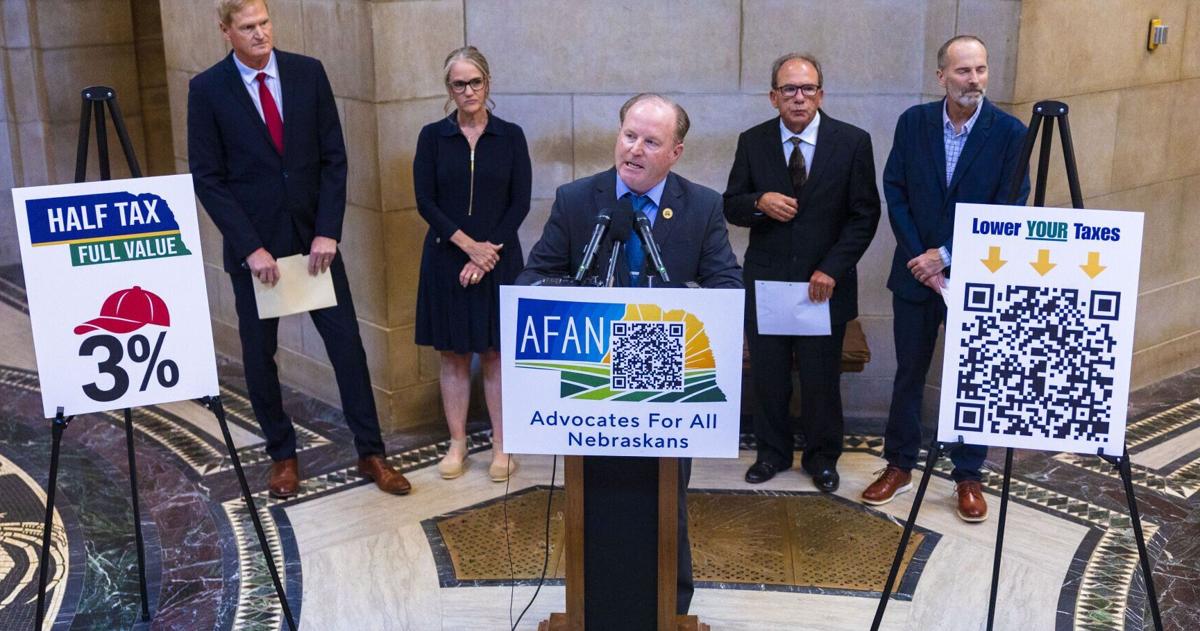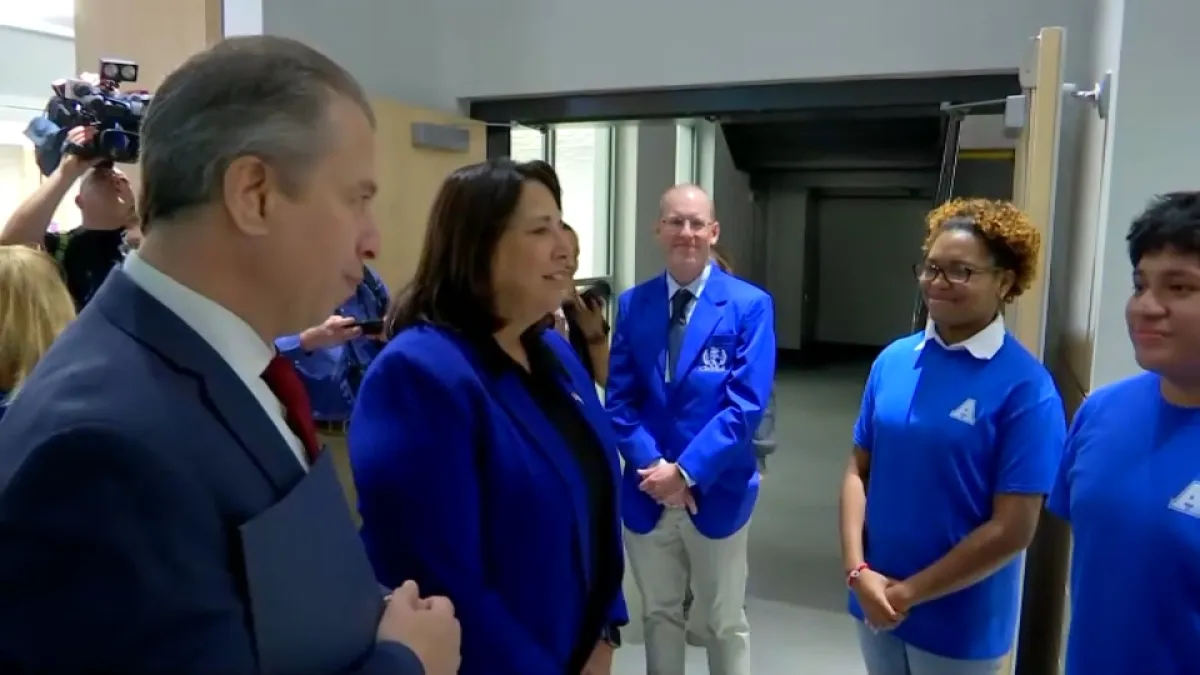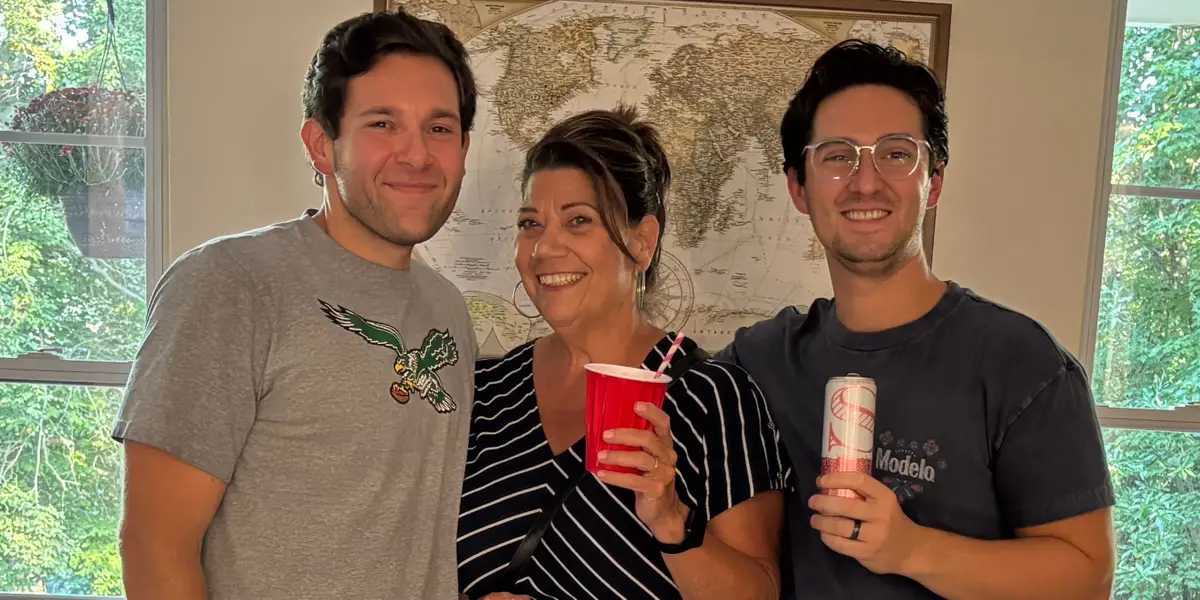
Organizers behind a pair of petitions seeking to cut property tax bills in half have introduced a new initiative to raise the minimum salary for public school teachers in Nebraska to $50,000.
Advocates for All Nebraskans said the latest initiative would require the state to come up with the additional funding. They are calling it the “Assist Property Tax Payers through Legislative Education support” plan, or APPLE.
The third part of the nonprofit ballot campaign’s plan follows two earlier measures announced in August that sponsors said would put the power in the hands of Nebraskans to reduce their own property taxes.
The first would tax homes, businesses and farms at 50% of their assessed value. Agricultural and horticultural land, which is currently assessed at 75% of its assessed value, would be taxed at 37.5%, while farmland would be taxed at 25% of value for any voter-approved school bonds.
The second initiative, which would need the signatures of roughly 130,000 registered voters to appear on the November 2026 ballot because it amends the state constitution, would cap growth in property tax revenue at 3% annually.
At an earlier press conference in the Rotunda, Eric Underwood, a co-sponsor of the petitions and former chairman of the Nebraska Republican Party, hinted that a third petition was coming “to ensure our schools are properly funded.”
According to the petition language filed with Secretary of State Bob Evnen on Sept. 22, public school districts would be required to set a uniform starting salary of $50,000 in the 2027-28 school year.
After the 2029-30 school year, the base pay increase would mirror the total change in the state’s general fund receipts for the preceding biennium.
The Legislature would be responsible for creating a block grant to fund the minimum teacher pay based on, in part, student enrollment and the number of certificated teachers in a school district.
The petition also charges the State Board of Education with monitoring compliance with districts’ reporting on teacher salaries and student enrollment.
Nothing in the petition language prevents schools from paying teachers more than the established minimum, but any additional pay “shall be funded by the public school district from sources” other than a block grant, according to the petition.
Underwood said the two-part plan — referring to the earlier petitions as well as the one announced this week — was simple and easy for Nebraska voters to understand.
“The first provides significant, bold, and immediate property tax relief,” he said, “and the second creates a modern, sustainable funding model for our public schools.”
Funding plan unclear
Kirk Penner, a former school board member who now sits on the State Board of Education, said the three-pronged plan would ensure schools are properly funded — neither the petition nor the press release indicate where the funding would come from — while also moving them away from property taxes.
And Doug Fitzgerald, the host of the Drive Time Nebraska podcast, said the plan would reduce property taxes by $2.6 billion in Nebraska, which he said could result in “a powerful multiplier effect on our economy and almost $150 million in sales tax revenue in the first year alone.”
As in the two previous petitions put forward by Advocates for All Nebraskans, opponents raised questions about how the latest initiative would work in practice.
Listen now and subscribe: Apple Podcasts | Google Podcasts | Spotify | RSS Feed | SoundStack | All Of Our Podcasts
Tim Royers, president of the Nebraska State Education Association, the state’s largest teachers’ union, said he was skeptical of the plan.
“We’ve looked at this, and $50,000 is certainly an admirable target, but there’s no way to get there in a single year unless you’re talking a 15-20% increase in funding,” Royers said.
Nebraska ranks last in starting pay
According to the National Education Association, the average starting teacher pay in Nebraska is just under $39,000, which ranks last in the country.
But in the Omaha Public Schools, the starting teacher salary for this school year was $51,200.
The average teacher salary for Nebraska educators is $60,239, which puts the Cornhusker State at 37th nationally.
Royers said Nebraska school districts would either need a boost in revenue or to claw back pay from more experienced teachers in order to raise the floor: “Most teachers would see income loss to make this work.”
Other states that have taken similar steps have reported a compression in teacher salaries.
In Arkansas, lawmakers raised the starting teacher pay from $36,000 to $50,000 in the 2023-24 school year and eliminated the salary schedule requiring districts to pay teachers more for their experience and education.
Nearly one third of Arkansas’ public school districts — 71 of 234 — offered $50,000 for all salary schedule levels, according to the Arkansas Advocate.
Meanwhile, of those schools, 65 now have maximum salaries lower than what they offered veteran teachers before the law took effect. The decrease in maximum pay averaged $6,200 across those districts, with some schools dropping their maximum pay by as much as $23,000.
Iowa and South Dakota have passed legislation establishing a minimum pay for teachers.
Iowa’s law raised the minimum from $33,500 from $50,000, while the Hawkeye State’s law guarantees teachers with 12 years of experience a $62,000 salary beginning next year.
In South Dakota, lawmakers raised the minimum pay for educators to $45,000 this year. Some districts, particularly those with shrinking enrollments, said the law amounted to an “unfunded mandate” that required them to either increase locally assessed property taxes or cut school services.
Royers said in Nebraska, teachers beyond their fifth year in the classroom would likely see a loss of income should Advocates for All Nebraskans’ ballot measure pass and become law.
“We don’t think it’s sustainable, and we don’t think the math works for what they are proposing,” Royers said. “They are trying to use teacher compensation as the sweetener to make this sound like it’s actually good.”
Other organizations have pointed to inherent problems in the two other ballot initiatives being sponsored by Advocates for All Nebraskans.
The Nebraska Association of County Officials said that in addition to putting services in jeopardy, cutting a home or farm’s taxable valuation in half would not necessarily mean property owners would pay less in taxes.
Some elected school boards or county boards could — theoretically — double their property tax levy to make up for the loss of revenue if voters chose to halve their valuation.
Be the first to know
Get local news delivered to your inbox!
* I understand and agree that registration on or use of this site constitutes agreement to its user agreement and privacy policy.
Chris Dunker
Get email notifications on {{subject}} daily!
Your notification has been saved.
There was a problem saving your notification.
{{description}}
Email notifications are only sent once a day, and only if there are new matching items.
Followed notifications
Please log in to use this feature
Log In
Don’t have an account? Sign Up Today



